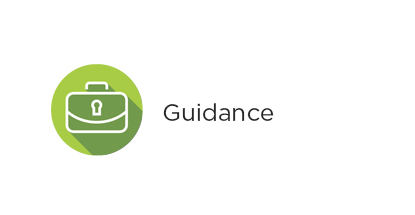
When looking for a practitioner to perform accounting services, here are a few tips to consider:
- Ask around. Approach trusted family members, friends or colleagues to enquire if they know of any practitioners who they feel comfortable referring. Ask them to share what their first-hand experience has been with that practitioner. You can also do some basic due diligence by searching the practitioner’s name and firm on the internet, viewing their social media profiles, firm website, and other relevant materials on trusted websites (such as the Better Business Bureau, etc.). You can also check client reviews that may be posted online though you may want to be careful about the reliability and accuracy of these reviews.
- Decide whether you want to use a practitioner who is licensed for public practice and regulated.
In BC, for an accountant to become a Chartered Professional Accountant (CPA), they first complete extensive education, have to pass successful examinations, and obtain relevant practical experience. Then, if the CPA wishes to engage in public accounting by offering their services to the public, they have to apply to CPABC, the accounting regulator in the province, for a practice license which requires them to satisfy stringent requirements to obtain a license including having adequate professional liability insurance.
A CPA who is licensed for public practice is regulated by CPABC and must conduct themselves in accordance with the CPA Act, the professions’ Bylaws and Code of Professional Conduct. The Code of Professional Conduct governs members through a set of rigorous rules covering: due care; objectivity; integrity; conflicts of interest; competence; independence; practice inspection; and much more.
In addition, when dealing with a licensed practitioner, there is a complaints process that can be accessed should any professional issues arise.
To check whether an accountant is a CPA member and whether they are licensed to engage in public practice, there is a public directory that is available on the CPABC website.
- Be clear about the professional services that you want performed by the practitioner. For example, the professional services could be bookkeeping; preparation and filing of personal or corporate tax returns; compiling a set of financial statements; an assurance engagement such as an audit or review; just to name a few. Understand what you need done helps in defining the scope of professional services.
- Contact the practitioner and ask them if they are able to provide the services that you require. Talk to them over the phone or visit them in person at their business office to assess if you and the practitioner could be a good fit. You may want to check out a few practitioners to find the one that you feel most comfortable with.
- Once you’ve selected your practitioner, ask for an engagement letter - which is a type of professional services contract detailing the scope of work, responsibilities of each party, and the estimate fee for the services and billing arrangement. Consider whether you need to have your legal counsel review the terms of the engagement letter. Make sure you understand the terms of the engagement before signing and returning the letter to the practitioner.
- When you are ready to start the work, provide the practitioner with copies of your information and organize your information in a logical manner. This can save time, avoid mistakes and help keep the engagement to budget.
- Keep in regular contact with the practitioner to check in on how the work is progressing. When asked to provide additional information, cooperate by providing relevant information on a timely basis.
- At various stages of the engagement, depending on the billing arrangement, you will receive an invoice or statement. Check the charges to ensure they are fair and reasonable and make prompt payments to keep your account current.
By considering these useful tips, you can create a good relationship with your practitioner that can last for many years to come.
Rate this Entry
Current rating: 1 yes votes, 2 no votes

